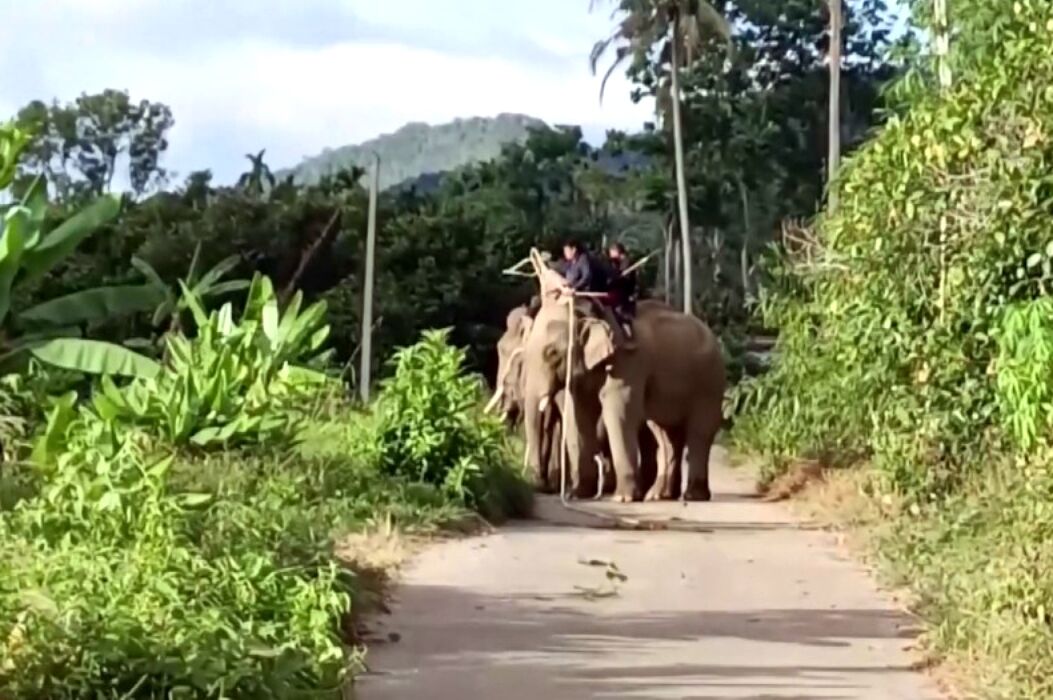Wild elephant captured after 22 days of disruption

Perhaps only in Thailand can an elephant be avoiding a court order for disturbing the peace. After 22 days on the lam, a wild elephant has been successfully captured in the Nop Phi Tham district of the southern province of Nakhon Si Thammarat. The “elephant arrest” was made to comply with a court order issued to relocate it due to the animal’s continuous community disruption.
The Department of National Parks, Wildlife and Plant Conservation (DNP) initiated a comprehensive operation to locate and apprehend the wild elephant, named Phlai Chao Nga, on Friday night.
Lending their expertise, a pair of captive elephants, owned by local mahout Wiroj Supradit, played a crucial role in tracking and extracting Phlai Chao Nga, also referred to as Phlai Khai Nui, from the forest.
To assist in the search for the renegade wild elephant, infrared drones were enlisted, supported by Apinan Chaowalit, head of Tha Sala subdistrict administrative organisation. Upon pinpointing Phlai Chao Nga’s location, the team administered a tranquilliser to subdue the problematic pachyderm.
Once sedated, the wild elephant was safely tethered to the two captive elephants and guided out of the forest. The elephant was subsequently transferred to the Protected Areas Regional Office 5 in Nakhon Si Thammarat, which is overseeing the upcoming relocation process.
The directive for relocation was issued by the Nakhon Si Thammarat Administrative Court on July 21, but it took several weeks to track down and take into custody the wild elephant. The decision was prompted by the giant animal’s departure from Tai Rom Yen National Park.
It had wandered into local farming areas and subsequently inflicted significant crop damage on residents. The elephant initially entered tambon Krung Ching in search of sustenance in the wild in January 2022.
Its presence led to multiple complaints from villagers as crops and farmland incurred damage by being trampled and eaten by Phlai Chao Nga. As reported by the DNP, over 100 local livelihoods were adversely affected by the continuous movement of the roaming wild elephant in the region.
Latest Thailand News
Follow The Thaiger on Google News:


























